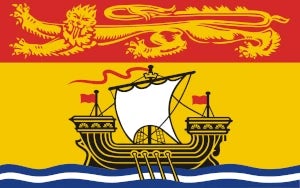New Brunswick employs a progressive income tax system with four brackets that increase in rate as taxable income rises. For 2024, the province taxes the first $47,715 of income at 9.4%, income between $47,716 and $95,431 at 14.82%, income between $95,432 and $176,756 at 16.52%, and any income over $176,756 at 19.52%. These rates apply after eligible deductions and credits are calculated, and are charged in addition to federal income taxes that all Canadian residents must pay.
The province offers various tax credits similar to the federal system, including the basic personal amount which was $12,458 in 2024, effectively creating a zero-tax bracket for initial income. New Brunswick residents can also claim provincial amounts for eligible dependents, age, disability, medical expenses, and charitable donations. The province provides some unique credits like the New Brunswick Low-Income Tax Reduction program which helps reduce the tax burden for qualifying low-income individuals and families.
Tax administration in New Brunswick is integrated with the federal system, meaning residents file a single tax return that calculates both obligations. Most employed New Brunswickers have income tax withheld from their paychecks throughout the year, with final calculations and any needed adjustments occurring during tax filing season. The standard filing deadline is April 30th each year, with self-employed individuals having until June 15th to file (though any taxes owed are still due April 30th).
New Brunswick's tax system is influenced by its economic realities as a smaller Atlantic province with limited natural resource revenues. The province implements a Harmonized Sales Tax (HST) of 15% (consisting of the 5% federal GST and a 10% provincial portion), which provides significant government revenue alongside income taxes. This dual revenue approach helps fund provincial healthcare, education, and infrastructure programs.
The overall tax burden in New Brunswick is higher than some western provinces but generally in line with its Atlantic neighbors. The province occasionally adjusts its tax structure to remain regionally competitive while balancing budget requirements, with modest changes to brackets and rates implemented over time rather than dramatic overhauls. New Brunswick also offers targeted tax incentives for specific economic sectors to encourage investment and job creation within the province.
New Brunswick Income Tax Brackets
The income tax rates in New Brunswick remain unchanged. The tax brackets were increased by an indexation factor of 1.047 for 2024 and 1.027, based on the CPI (Consumer Price Index). The revision to the income tax brackets is outlined in the table below.
New Brunswick Provincial Income Tax Brackets
| 2023 | 2024 | 2025 | Rate |
|---|---|---|---|
| Up to $47,715 | Up to $49,958 | Up to $51,306 | 9.4% |
| $47,716 to $95,431 | $49,959 to $99,916 | $51,306 to $102,614 | 14.0% |
| $95,432 to $176,756 | $99,917 to $185,064 | $102,614 to $190,060 | 16.0% |
| More than $176,756 | More than $185,064 | More than $190,060 | 19.5% |
Source: Canada Revenue Agency
The basic personal amount for 2024 in New Brunswick is $13,044 rising to $13,396 for 2025. The basic personal amount is the amount on which you are not required to pay any tax. You will not owe any provincial income tax if your income is lower than the basic personal amount. If your income is more than the basic personal amount, you can subtract the tax on this amount from the total income tax calculated. The following table outlines the personal tax credit amounts from 2023 to 2025.
New Brunswick Personal Tax Credits 2023 - 2025
| 2023 | 2024 | 2025 | |
|---|---|---|---|
| Basic Personal Amount | $12,458 | $13,044 | $13,396 |
| Maximum Spouse/Common-Law Partner Amount | $9,764 | $11,246 | $11,550 |
Source: Canada Revenue Agency
New Brunswick Low-Income Tax Reduction
Low-Income Tax Reduction was implemented in the province in 2001, with the aim to reduce the tax payable for low-income individuals and families. The low-income tax reduction provides a non-refundable tax credit depending on your income. For 2023, you are eligible for this tax credit if your income is less than $45,252 or your family income is less than $70,118.
You can claim an amount of up to $746 for yourself. Additionally, you can claim an amount of $746 if you have an eligible spouse/common-law partner, plus $746 for an eligible dependant. The maximum reduction that can be claimed is $1,492.
The income threshold is $20,385. This means if your income exceeds this amount, you will receive a reduced credit, calculated using a phase-out rate of 3%.
New Brunswick Low-Income Seniors' Benefit
Those receiving the Guaranteed Income Supplement (GIS), Allowance for Survivor Program, or the Allowance Program are eligible for a $400 benefit. Only one benefit will be granted if both spouses are eligible and reside in one household. However, spouses living separately will both be eligible for the benefit.
Other Credits in New Brunswick
There are several other credits available to residents of New Brunswick that can reduce the income tax you owe, such as:
- Age amount
- Disability Amount
- Caregiver Amount
- Medical Expense Credit
- NB Political Contribution Tax Credit
- NB Small Business Investor Tax Credit
The list of other credits available in New Brunswick can be found on the New Brunswick government website’s Personal Income Tax page.
